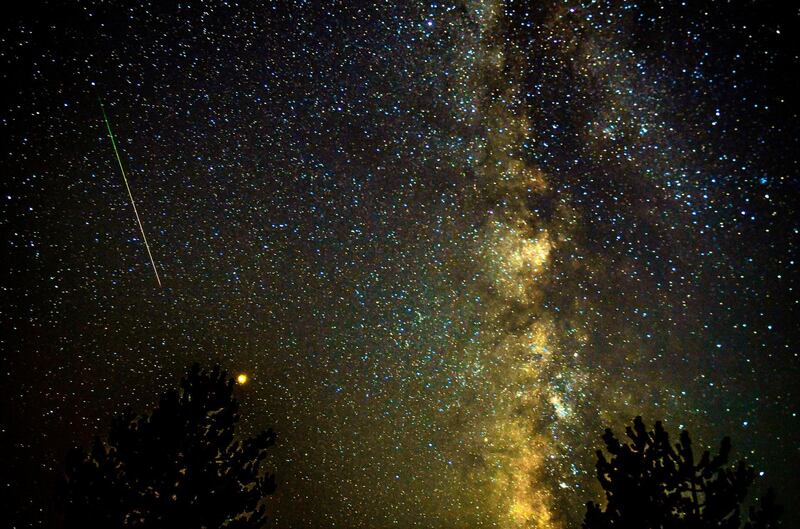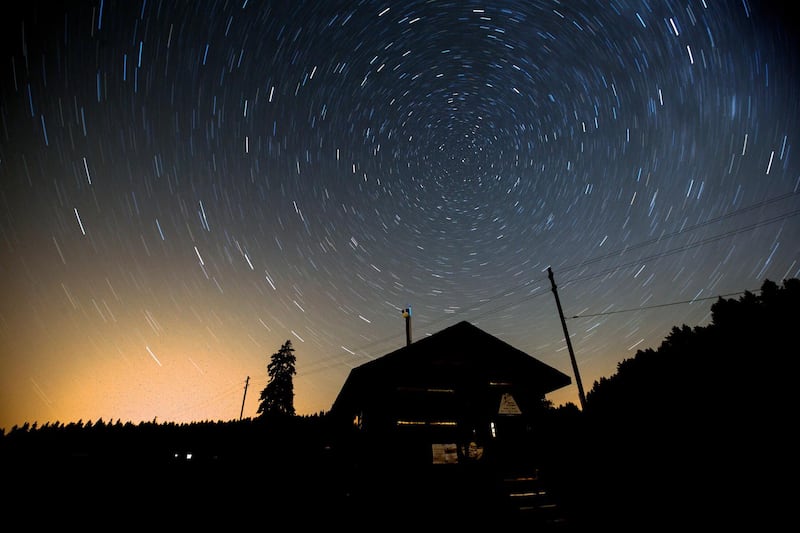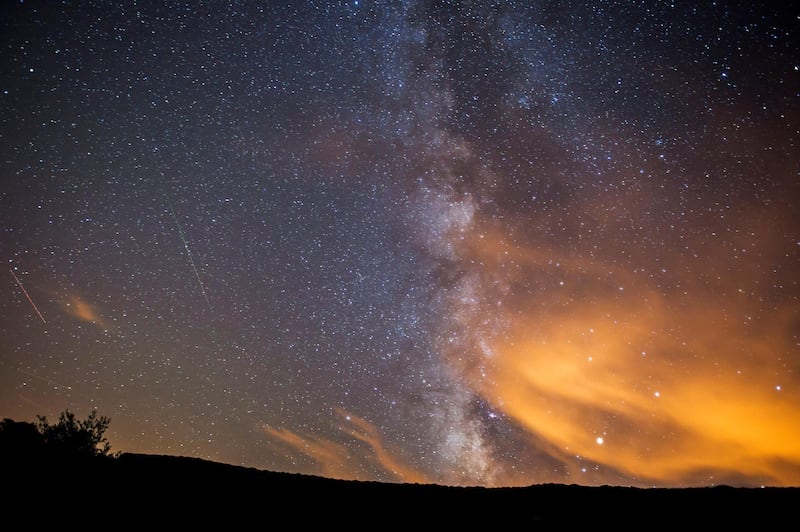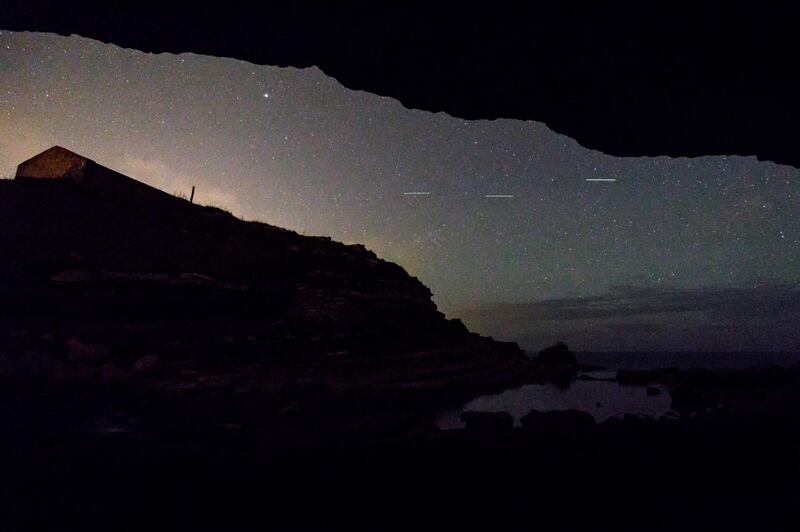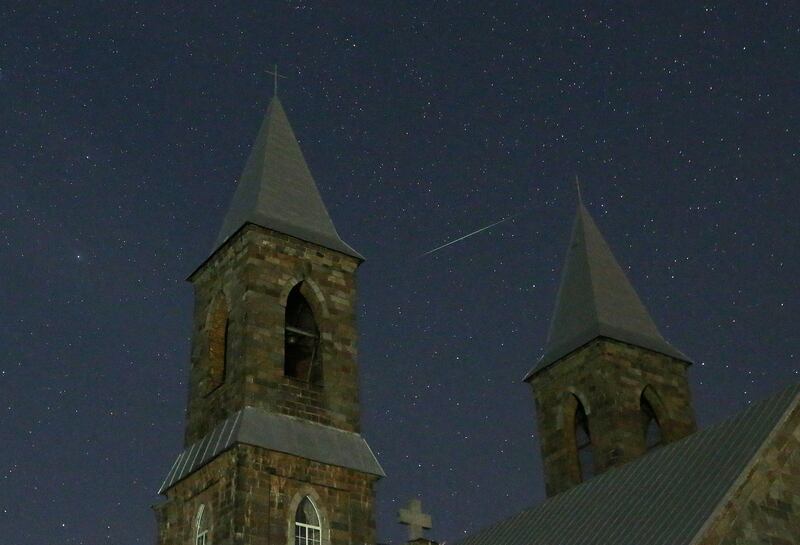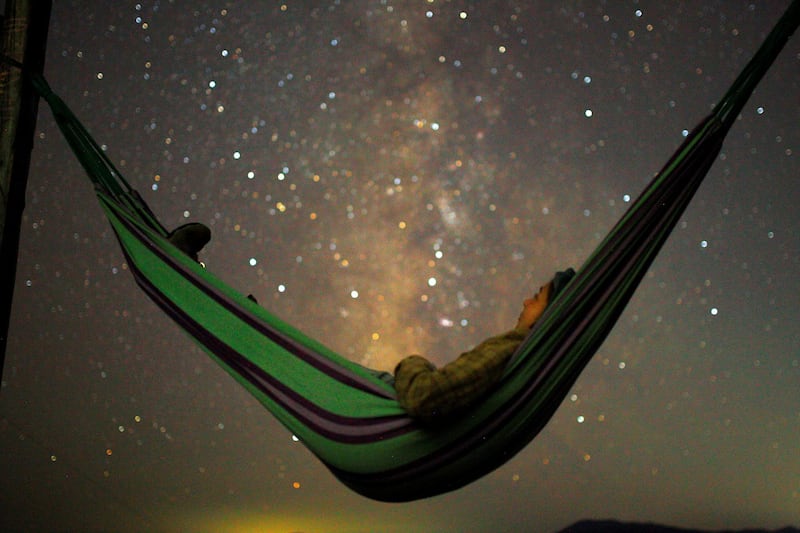‘Fireballs’ will shoot over the UAE this week, as an annual Perseid meteor shower will reach its peak on Wednesday night.
Up to 60 meteors and shooting stars per hour will fly across the night sky, creating a stellar show for spectators.
The showers began on July 17 but will be at their most intense between August 12 to 13, when they can be seen in different parts of the world.
Dubai Astronomy Group has organised a gathering this week for star-gazers in Al Qudra desert - an ideal location because of reduced light pollution.

"The Perseids is one of the best meteor showers to observe, producing up to 60 meteors per hour at its peak. They are famous for producing a large number of bright meteors,” the group said.
“The second quarter moon will block out some of the fainter meteors this year, but the Perseids are so bright and numerous that it should still be a good show. Best viewing will be from a dark location after midnight.”
The meteorite shower is caused by comet Swift-Tuttle, which was discovered in 1862.
It leaves behind a long trail of dust and debris during its 133-year orbit around the sun.
When Earth passes through the comet’s leftovers each year, it creates the meteor shower. The debris collides with the atmosphere and disintegrates, causing the colourful show.
The comet made it closest fly-by to our planet in 1992 and the next one will be in 2126.
Weather on the night of August 12 are expected to be a bit hazy, with the second quarter moon visible.
However, astronomers expect the larger and brighter meteorites in the showers to still be visible.
The event by Dubai Astronomy Group begins at 10pm on Wednesday and more information is available here. Face masks and social distancing is mandatory.
The next meteoroid shower will be the Geminids in December, which include 120 meteorites shooting across the skies per hour.
